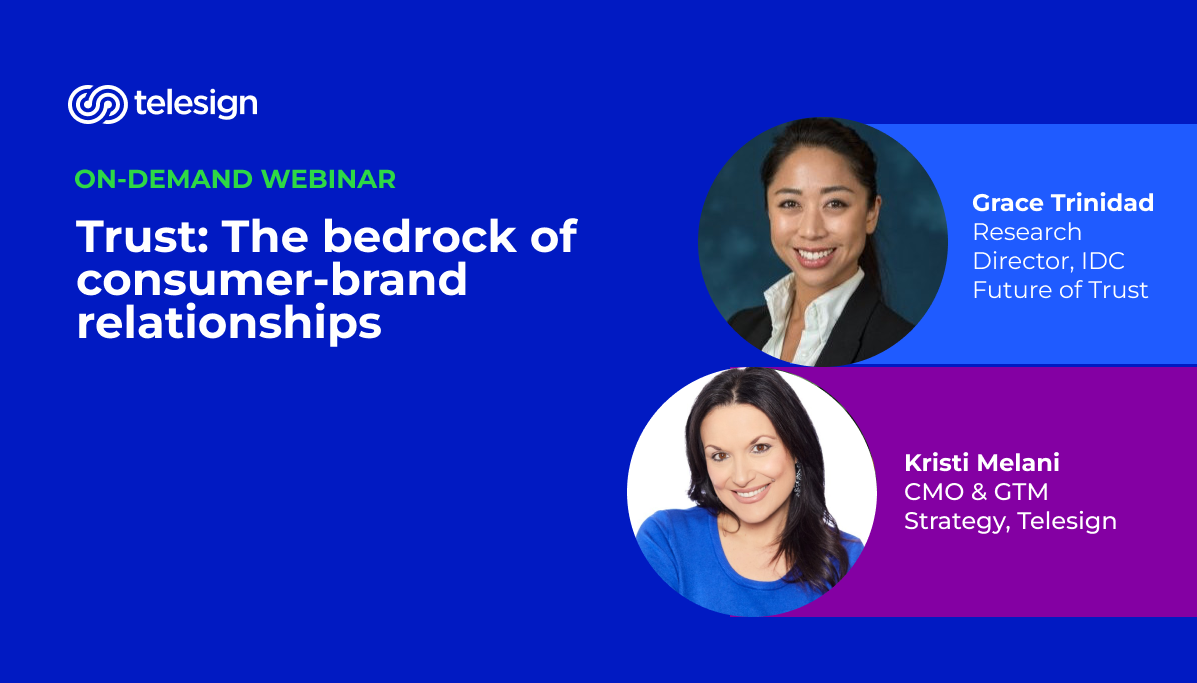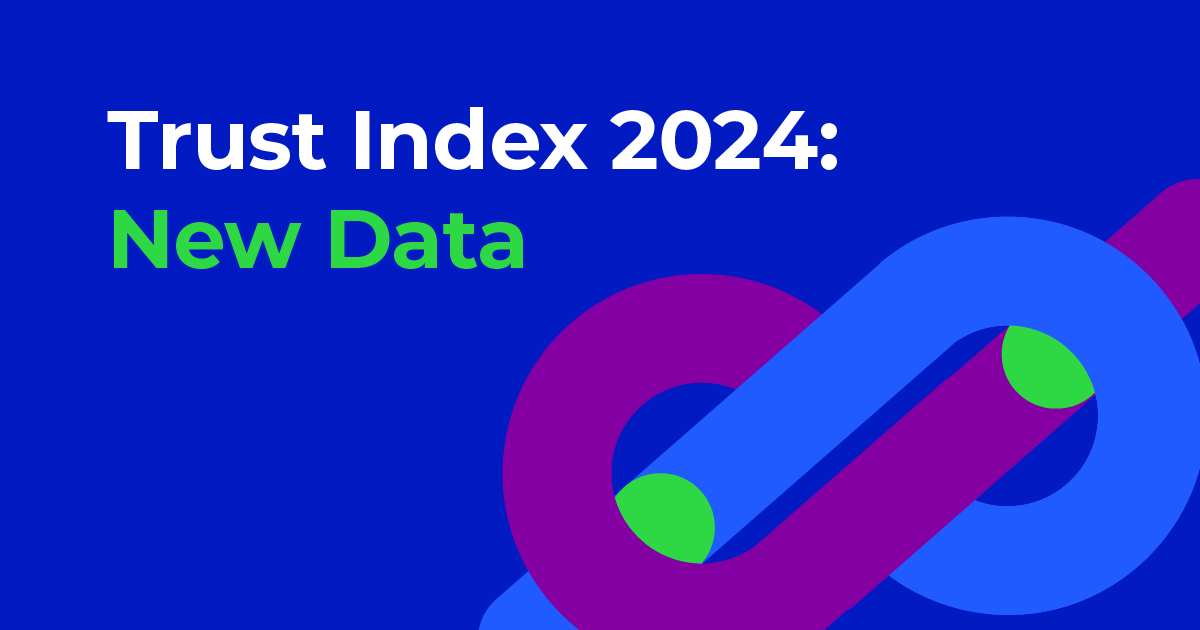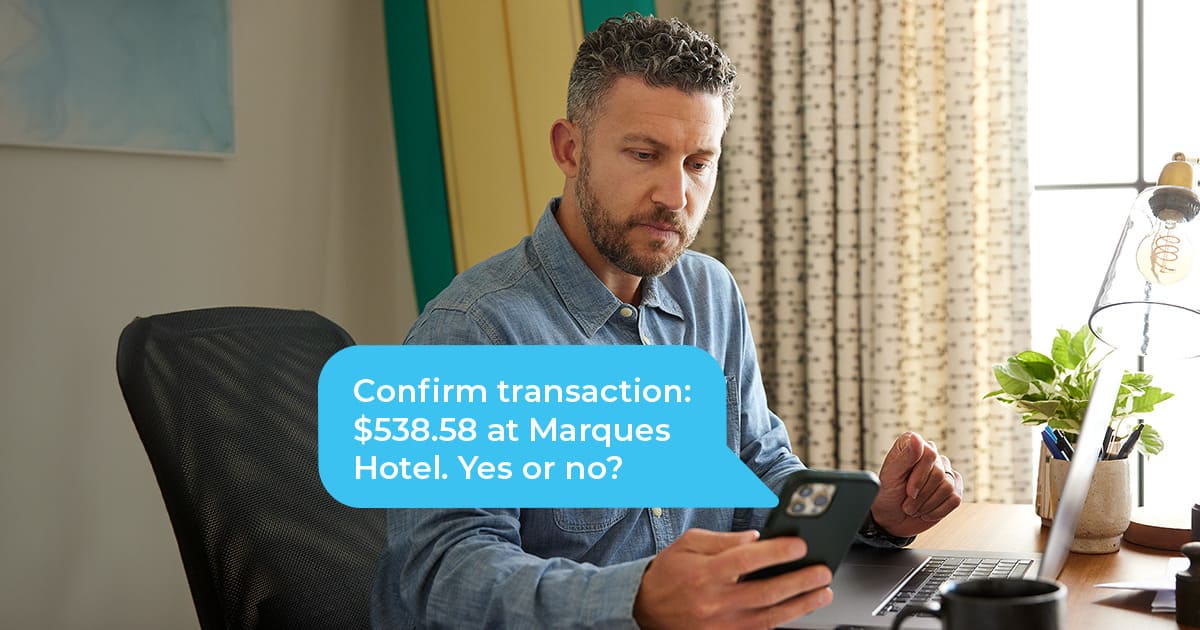
What are the ingredients of the “trust recipe?” And why do organizations that prioritize and earn trust reach higher levels of success? The answers were among the insights provided by Grace Trinidad, Research Director at IDC’s Future of Trust practice, at a September 20th webinar hosted by Telesign. Here are three takeaways from Grace, and my thoughts on each.
1. There are four top ingredients in the “trust recipe”:
- Competence: the expertise and skills relevant to the task or job at hand.
- Transparency: honest, timely communication.
- Fidelity: faithfulness to your obligations.
- Integrity: strong ethical or moral principles.
All these ingredients are crucial, but as a marketing leader, transparency is especially relevant to my work. If your business possesses competence, fidelity, and integrity, finding ways to communicate those attributes to your audience—to build trust with your audience—is key.
Honest communication is also critical when mistakes are made. Being forthright about it, and the steps you will take to fix the problem can mitigate the negative impacts, as long as an appropriate level of trust is previously established.
2. Organizations that prioritize Trust programs gain business benefits. According to IDC, they improve in the following areas:
- Business resilience: an increased ability to respond and adapt to disruptions or unplanned changes.
- Operational efficiency: reductions in the time, effort, and materials necessary to provide high-quality services or products.
- Sustainability: the ability to support current economic, environmental, and social processes without sacrificing the future viability of each.
Part of the answer to why trusted organizations are more successful lies in why an organization prioritizes trust in the first place: the customer relationship. If your business is grounded in the interests of your customers—and your processes are all built on that foundation—it naturally leads to effective practices.
You want to aid your customers no matter what the world throws at you (resilience). You want to get better and faster at getting customers what they need (efficiency). And you want to do it the right way for the larger world (sustainability).
On the other hand, if your purpose is your own profit above all else, shortcuts are often taken. Policies will be set that detract from the customer experience since it is a lower priority. Through this lens, trust as a priority means the customer is the priority. This is the roadmap to shared success.
3. The decline of trust across many sectors and institutions makes consumers feel that their efforts to protect their own privacy are futile. It shouldn’t be that way. Businesses need to step up and “embed privacy by design.”
Consumers hold brands to a high standard when it comes to providing a secure online experience. The Telesign Trust Index found that 94% of consumers agree that businesses bear responsibility for protecting their privacy. Yet, at the same time, we know that consumers themselves often fail to take well-known privacy-protecting actions on their own.
For example, they continue to use versions of the word “password” as their password. Grace theorizes that many simply think their efforts won’t work; their data will still be compromised or lost in a breach if it hasn’t already been taken from them. As a result, she explains that it is up to organizations to “embed privacy by design, and in so doing, trust by design.” She recommends stepping up “to create the default privacy controls you would want if it was your own data in question.”
We launched the Telesign Trust Certified Badge as a way for digital businesses to demonstrate that they work hard to protect consumer data. The badge signifies that a brand meets high standards of protection against fraud and identity theft. Our goal is to empower businesses to make it clear to their customers that they are entering a space that protects their personal information and puts their safety first.
There are many more insights in trust in our one-hour conversation with Grace Trinidad found here.




